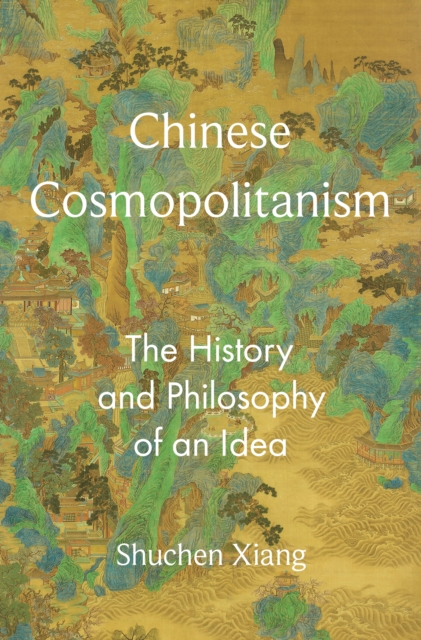Chinese Cosmopolitanism: The History and Philosophy of an Idea

Chinese Cosmopolitanism: The History and Philosophy of an Idea
A provocative defense of a forgotten Chinese approach to identity and difference
Historically, the Western encounter with difference has been catastrophic: the extermination and displacement of aboriginal populations, the transatlantic slave trade, and colonialism. China, however, took a different historical path. In Chinese Cosmopolitanism, Shuchen Xiang argues that the Chinese cultural tradition was, from its formative beginnings and throughout its imperial history, a cosmopolitan melting pot that synthesized the different cultures that came into its orbit. Unlike the West, which cast its collisions with different cultures in Manichean terms of the ontologically irreconcilable difference between civilization and barbarism, China was a dynamic identity created out of difference. The reasons for this, Xiang argues, are philosophical: Chinese philosophy has the conceptual resources for providing alternative ways to understand pluralism. Xiang explains that "Chinese" identity is not what the West understands as a racial identity; it is not a group of people related by common descent or heredity but rather a hybrid of coalescing cultures. To use the Western discourse of race to frame the Chinese view of non-Chinese, she argues, is a category error. Xiang shows that China was both internally cosmopolitan, embracing distinct peoples into a common identity, and externally cosmopolitan, having knowledge of faraway lands without an ideological need to subjugate them. Contrasting the Chinese understanding of efficacy--described as "harmony"--with the Western understanding of order, she argues that the Chinese sought to gain influence over others by having them spontaneously accept the virtue of one's position. These ideas from Chinese philosophy, she contends, offer a new way to understand today's multipolar world and can make a valuable contribution to contemporary discussions in the critical philosophy of race.PRP: 244.80 Lei
Acesta este Prețul Recomandat de Producător. Prețul de vânzare al produsului este afișat mai jos.
195.84Lei
195.84Lei
244.80 LeiLivrare in 2-4 saptamani
Descrierea produsului
A provocative defense of a forgotten Chinese approach to identity and difference
Historically, the Western encounter with difference has been catastrophic: the extermination and displacement of aboriginal populations, the transatlantic slave trade, and colonialism. China, however, took a different historical path. In Chinese Cosmopolitanism, Shuchen Xiang argues that the Chinese cultural tradition was, from its formative beginnings and throughout its imperial history, a cosmopolitan melting pot that synthesized the different cultures that came into its orbit. Unlike the West, which cast its collisions with different cultures in Manichean terms of the ontologically irreconcilable difference between civilization and barbarism, China was a dynamic identity created out of difference. The reasons for this, Xiang argues, are philosophical: Chinese philosophy has the conceptual resources for providing alternative ways to understand pluralism. Xiang explains that "Chinese" identity is not what the West understands as a racial identity; it is not a group of people related by common descent or heredity but rather a hybrid of coalescing cultures. To use the Western discourse of race to frame the Chinese view of non-Chinese, she argues, is a category error. Xiang shows that China was both internally cosmopolitan, embracing distinct peoples into a common identity, and externally cosmopolitan, having knowledge of faraway lands without an ideological need to subjugate them. Contrasting the Chinese understanding of efficacy--described as "harmony"--with the Western understanding of order, she argues that the Chinese sought to gain influence over others by having them spontaneously accept the virtue of one's position. These ideas from Chinese philosophy, she contends, offer a new way to understand today's multipolar world and can make a valuable contribution to contemporary discussions in the critical philosophy of race.Detaliile produsului









